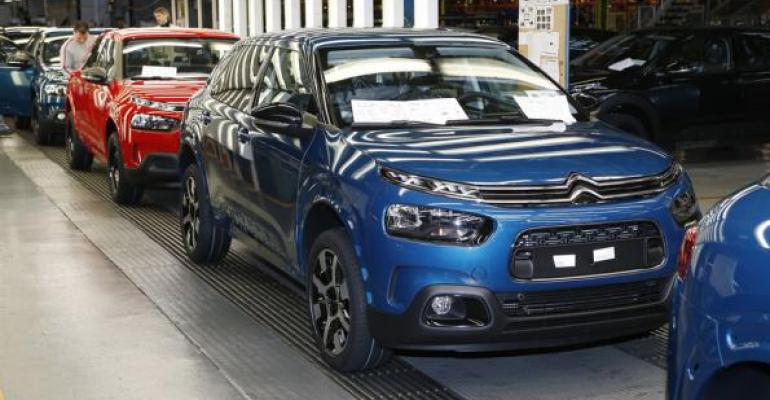MADRID ─ PSA Group launches production of a revised version of its Citroen C4 Cactus compact hatchback at its refurbished Madrid plant, which has been threatened with closing in recent years due to low output.
Cactus production should allow the factory to remain open until 2021, when the French automaker is expected to bring in a new model.
Only 270,000 units of the earlier-generation Cactus were assembled from the time of its February 2014 production launch until being replaced by the reworked model this year. The Madrid plant’s annual average of 67,500 units is low for a plant with yearly capacity of 150,000 units in two shifts.
By 2017 production had slowed to 50,000 units, forcing temporary layoffs, the last of which affected 430 workers.
In the months before assembly of the updated Cactus began earlier this month, PSA was reorganizing the plant and remodeling the assembly line to improve efficiency. Innovations include the use of autonomous transport trolleys that replace traditional forklifts carrying pallets with components near the assembly line. The new system is more flexible and quick to supply up to 2,500 parts used to assemble each vehicle.
All the modifications are aimed at minimizing downtime and making the most of the space.
The plant now is assembling the latest version of the Cactus at a rate of 450 cars per day in two work shifts, one of them with a variable number of hours according to the market demand.
Linda Jackson, CEO of PSA’s Citroen brand, visited the Madrid plant in October and expressed confidence that Cactus sales will allow the plant to achieve annual production of 90,000 units and remain open until 2021, when a new model is to be assembled at the plant – an investment of €144 million ($178 million).
The revised Cactus incorporates driving-assistance technologies such as hill assist, lane-departure warning and active safety braking, as well as connectivity technologies.
The CUV also features new progressive hydraulic shock absorbers for which PSA has obtained 20 patents. The system adds two hydraulic stops to the sides of each shock absorber, one extension and one compression.
Combined with the spring and the shock absorber, these stops give greater freedom of movement to the vehicle and progressively slow down movement of the body, achieving even in the worst road conditions an effect that Citroen engineers call “flying carpet.”





